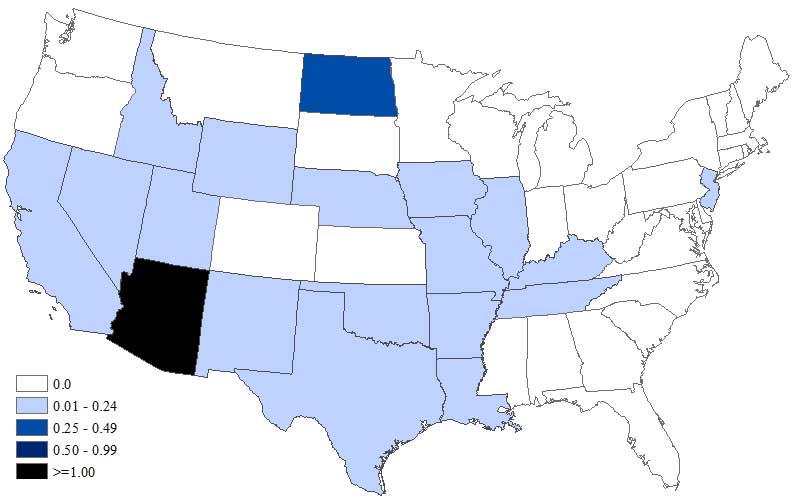For Aberdeen woman, West Nile virus has been a long, painful journey
Associated Press
Posted on Sun, Sep. 11, 2005
ABERDEEN, S.D. - More than two years after Amber Hopf contracted West Nile virus, she still hasn't recovered fully and the 21-year-old wonders whether she ever will.
"People don't understand how scary it is until they're in that spot," said Hopf of Aberdeen. "It's the sickest I've ever been, and hopefully the sickest I will ever be."
Hopf thinks she got mosquito-borne virus on July 27, 2003, while she dined with friends on the deck of a Mina Lake home.
"I had more than 50 bites," she said, even though she wore jeans and a long-sleeved shirt and took other precautions that Sunday evening.
Later, it led to viral meningitis.
Hopf said her recovery has been long and painful, and she still lacks energy.
"I can't go a full day without a 10-minute nap, at least," said Hopf, a student at North Dakota State University in Fargo, N.D. "I just had my routine annual physical and my blood counts are off. That's where my frustration comes in. There's still a lot of proof in my body that I had it."
Kathy Hopf, of Aberdeen, said her daughter has faced a variety of problems because of West Nile including permanent optical nerve damage.
"We don't know how many things were affected, or what else we may find out in the next five to 10 years," Hopf said.
She said it was an eye-opener to realize young people who contract the virus can end up with a serious disease such as meningitis. More commonly, such complications happen to older people.
Early in the progression of the disease, Amber was hospitalized for six days, mainly for dehydration. Fever and vomiting plagued her. She lost about 30 pounds from August to December 2003, she said.
There were times when she couldn't walk more than a half block without falling down, her mother said.
While Amber missed the first two weeks of the 2003 fall semester at NDSU, she was able to take a reduced load that semester and did most of her class work from her parents' home in Aberdeen.
"Thank God I passed my classes. My professors were really nice about it," Amber said.
Now that she knows what West Nile can do, Amber said she wants to help others avoid it.
"People need to watch out for each other," she said.
She also hopes the city of Aberdeen will beef up its mosquito-control efforts so that others might be spared what she endured.
"It's not buggy in Fargo," Amber said. "I could go to the park every day this summer to read or play Frisbee and not worry about mosquitoes. But in Aberdeen people can't have fun outside and just enjoy a summer."
Brown County has some the highest numbers of West Nile cases in the state and many of them have been in Aberdeen.
"It's important that we work together," said Bryan Hopf, Amber's father. Homes and businesses should do their part, "but there are so many places in Aberdeen that are public," he said.
Mayor Mike Levsen said he is confident the city is doing everything it can.
When state Department of Health officials recently visited Aberdeen to promote West Nile prevention, Levsen said they praised the city's efforts.
"I know people are frustrated. No one likes to be bit by mosquitoes," Levsen said. "We all want the city to be totally mosquito free, but that's impossible. We're doing as much as we can."
News Clips and Information on West Nile Virus Survivors. Videos and links to News Articles on West Nile Virus Families, West Nile Deaths, West Nile Virus Prevention and West Nile Virus Symptoms
Monday, September 12, 2005
Subscribe to:
Post Comments (Atom)
CDC West Nile Virus Info
Skip directly to page options Skip directly to A-Z link West Nile Virus Neuroinvasive Disease Incidence by State 2019 West Nil...

-
Teenage girl in Menifee dies after four-year battle with West Nile illness Download story podcast 10:00 PM PST on Wednesday, December 10...
-
Skip directly to page options Skip directly to A-Z link West Nile Virus Neuroinvasive Disease Incidence by State 2019 West Nil...
-
Tosa man battling West Nile dies Steiner was principal of Wauwatosa West High School By KAWANZA NEWSON knewson@journalsentinel.com Posted: N...

No comments:
Post a Comment